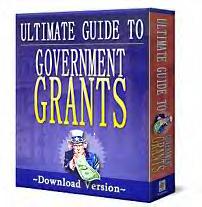Take The Mystery Out Of Finances And Simplify Your Life
What is finance and what do you need to know? Finance can
mean different things. It may refer to your personal
financial situation. It could refer to your investments or a
business's investments. It could refer to a credit or loan
purchase.
Financing can be involved in your life in different ways.
For example, if you are going to invest in a large purchase
such as a house or even a car. Large furniture purchases and
credit cards all fall into these categories. Interest rates
are the most integral part of financing. Why else would a
company want to loan you money or offer you credit? How else
would they benefit? They benefit from the interest that you
have to pay in on financing your loan. There are different
types of financing options available.
The percentage rate is the amount of interest that you pay.
The percentage rate is the certain portion of your loan or
credit that you pay back in interest. For= example, if your
loan was for $40,000 and your interest rate was 12.3% then
you would pay 12.3% of $40,000 in interest. The interest
would be added onto your $40,000 and you would pay it back
via your monthly payments.
Fixed rate: A fixed rate means your interest rate will stay
the same no matter what. People usually prefer these. If you
can get a low fixed rate, it will stay with you even if
other average interest rates are going up. Balloon rate: A
balloon rate can fluctuate with the times and the stock
market but depending on the situation, this can be
beneficial to you as well. You will have to decide which you
think is best for you.
There are different types of financing options as we
mentioned earlier. Probably the most common example of
finance in the United States is credit cards. A credit card
allows you to make purchases with the card. The bank issuing
the card will pay on your behalf and you then pay the= bank
back, plus the interest. The bank makes money off the
interest and you get what you want right away.
The same thing applies to pay-as-you-go or rental furniture
companies. There are even rent-to-own housing services now
where your monthly rent can go towards buying the house if
you want to stay. Financing should be a way to help you
achieve something that you're going to be purchasing anyway.
Financing can get you in your house quicker than saving up
the cash. Become knowledgable and financing can be a tool
that will serve you well.
About the Author
The author has discovered that what you do NOT know about your finances can hurt you. She has shared her knowledge and tips about finances with thousands of people and helped them to have a good relationship with money and financial matters
Kathleen Sutera is founder of All About Finance an excellent resource site dedicated to information on finance




